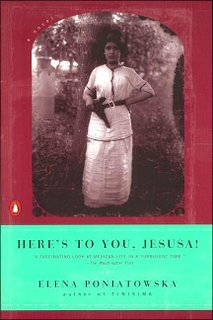A Series of Unfortunate Events
The 13th and last book in the series, "The End" came out on Friday the 13th. I reread a couple of the last few books that I didn't remember, and also "The Beatrice Letters" (Lisa sent me the 13th book and the Letters). And despite what some *coughCheri* might think, the story is quite lovely. :)
If you have ever peeled an onion, then you know that the first thin, paperyDon't pay any attention to Lemony Snicket's repeated warnings. Read the books, they don't make you cry like onions! :)
layer reveals another thin, papery layer, and that layer reveals another, and
another, and before you know it you have hundreds of layers all over the kitchen
table and thousands of tears in your eyes, sorry that you ever started peeling
in the first place and wishing that you had left the onion alone to wither away
on the shelf of the pantry while you went on with your life, even if that meant
never again enjoying the complicated and overwhelming taste of this strange and
bitter vegetable. In this way, the story of the Baudelaire orphans is like an
onion, and if you insist on reading each and every thin, papery layer in A
Series of Unfortunate Events, your only reward will be 170 chapters of misery in
your library and countless tears in your eyes. Even if you have read the first
twelve volumes of the Baudelaires' story, it is not too late to stop peeling
away the layers, and to put this book back on the shelf to wither away while you
read something less complicated and overwhelming. The end of this unhappy
chronicle is like its bad beginning, as each misfortune only reveals another,
and another, and another, and only those with the stomach for this strange and
bitter tale should venture any farther into the Baudelaire onion. I'm sorry to
tell you this, but that is how the story goes.
Anywho, the good things about this series are:
The writing is original and fun: As you can tell from the excerpt, he likes to talk about random things like onions, the water cycle, reasons not to read the book, and various other topics. I think this spices it up a bit, makes it amusing.
The story is good: Although it is the series of UNFORTUNATE events, it has it's happy moments, and in the end, they do, as far as you can tell, live happily ever after.
Emotion: It really brings emotions out. You laugh at the funny parts, I've cried a few times, and at the intense parts when theres action, you sit on the edge of your seat wondering what might happen.
The movie was cute and funny, but didn't really do much justice to the books. They are really great! On the top ten series list, their pretty far up there. :D


 This is a phenomenal story of a woman's search for identity in the volatile years of the Mexican Revolution. The story follows Jesusa from her earliest memories in a countryside with her family, to the life of a working-class elderly woman in the maze of Mexico City. The reader sees it all, from the peace of childhood to the discovery of her spirituality to industrialization. It seems as though Poniatowska creates Jesusa's narrative to serve as a metaphor for Mexico and what it is experiencing politically, socially, and psychologically at this time. Jesusa is the heroine of the story and, although she is at times so outrageous and difficult to understand, her strength, humor and sense of self give the first-person narrative such an overwhelming authority. For instance:
This is a phenomenal story of a woman's search for identity in the volatile years of the Mexican Revolution. The story follows Jesusa from her earliest memories in a countryside with her family, to the life of a working-class elderly woman in the maze of Mexico City. The reader sees it all, from the peace of childhood to the discovery of her spirituality to industrialization. It seems as though Poniatowska creates Jesusa's narrative to serve as a metaphor for Mexico and what it is experiencing politically, socially, and psychologically at this time. Jesusa is the heroine of the story and, although she is at times so outrageous and difficult to understand, her strength, humor and sense of self give the first-person narrative such an overwhelming authority. For instance:

